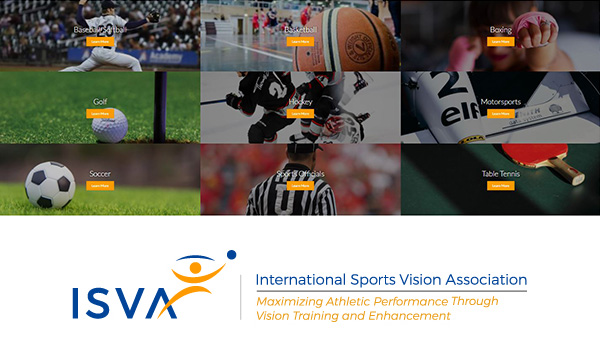

To help athletes of all levels, DeAnn Fitzgerald, OD, and The International Sports Vision Association (ISVA), an interdisciplinary group of professionals dedicated to advancing the field of vision training, have launched “Dynamic Visual Skills for Sports,” providing an overview of some of the most relative dynamic visual skills associated with these 12 sports-related areas.
Because information gathered through vision is thought to dominate over information from other sensory systems, it is recognized as essential to successful performance in almost every sport.1 A growing body of evidence confirms that visual abilities can be strengthened and enhanced by means of appropriate visual training, making an athlete’s eyesight one of the most important pieces of equipment they have.
“Every sport requires a set of dynamic visual skills that are critical to achieving peak performance,” explains Dr. Fitzgerald. “However, depending on the sport(s) you play, your reliance on those skills may differ. For example, the visual dynamics of golf require an individual’s emphasis on different visual and processing skills than that of an athlete playing a sport of almost constant motion, like basketball,” she adds.
Dr. Fitzgerald says that the first step in improving vision is regular eye exams, which are critical for everyone—not only elite athletes. “Vision care for athletes of all ages and skill levels should begin with the identification of visual factors that potentially contribute to peak performance.”
Baseball/Softball
Golf
Soccer
Basketball
Hockey
Sports Officials
Boxing
Motorsports
Table Tennis
Football
Skiing
Tennis
Other sports and areas of performance will be added soon.
“Sports Vision, the science of helping athletes reduce injury and reach peak levels of performance through the enhancement of visual skills, is becoming more and more important in training,” says Todd Daniels, Athletic Trainer and Concussion Specialist, University of Arizona/Banner University Medical Group. “These 12 profiles can help athletes, coaches, athletic trainers, and others to better understand the visual demands of different sports and what visual abilities can be enhanced by means of appropriate visual training. What is truly amazing about sports vision is how much of an improvement an athlete can get with even a small amount of training. This area is overlooked in the same way strength training was 20-30 years ago.“
Dr. Fitzgerald recommends that a qualified eye care professional with expertise in sports vision assessment and training be involved as a part of sport-specific performance enhancement team at all levels. “Working in partnership with athletic trainers, coaches, therapists and others, we can help athletes use their visual system to its maximum potential in order to gain optimal performance and a competitive edge.”
The ISVA website features a “Find a Sports Vision and Performance Professional” locator, a listing of ISVA members throughout the nation or in any geographic area.



